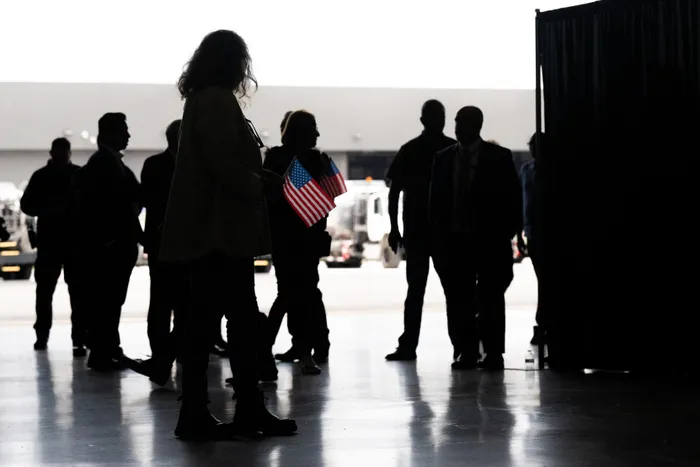Afrikaners in the US: This is how the US government will assist in resettling families

The first group of Afrikaners from South Africa arriving for resettlement in the US
Image: SAUL LOEB / AFP
The first group of South African Afrikaners have officially touched down in the United States of America.
Armed with US flags, the group listened intently as they were welcomed at the Dulles Airport in Virginia following their flight from Johannesburg.
While some South Africans continue to be in disbelief about how these white South Africans were able to be officially recognised as refugees by US President Donald Trump, the group will be starting their lives over in the "Land of the Free and the Home of the Brave."
"They are taking the land of white farmers and then killing them and their families. The media refuses to report on this. The United States has held back all contributions to South Africa," Trump infamously said in April.
These Afrikaners have been placed under the P1 refugee status under the US Refugee Admissions Program (USRAP). This is a pathway for individuals outside the US facing persecution to seek refuge.
It applies to those referred by the United Nations High Commissioner for Refugees (UNHCR), a US embassy, or designated non-governmental organisations (NGOs) due to 'compelling protection needs', such as persecution based on race, religion, nationality, political opinion, or membership in a particular social group.
How the US government will assist
Legal entry and work authorisation: Refugees gain lawful US entry and immediate work permission via a Form I-94 (Arrival/Departure Record) and an Employment Authorization Document.
Resettlement assistance: The Office of Refugee Resettlement (ORR) will provide the Afrikaners with initial housing, job placement, and school enrolment support through resettlement agencies.
Financial and medical aid: Eligible refugees access Refugee Cash Assistance (RCA) and Refugee Medical Assistance (RMA) for up to four months (post-May 2025 arrivals), covering basic needs like food and healthcare.
Federal benefits like Medicaid and Supplemental Nutrition Assistance Program (SNAP) may also apply.
Family reunification: Within two years, the Afrikaner refugees can file Form I-730 to petition for spouses and unmarried children under 21 to join them in the US.
Path to permanent residency: After one year, the refugees can apply for a Green Card, offering a route to citizenship.
Under 'normal' circumstances, to qualify, applicants must be outside the US (or, in rare cases, within their home country if authorised by the US President) and demonstrate past persecution or a well-founded fear of persecution.
IOL Politics
Get your news on the go, click here to join the IOL News WhatsApp channel.
Related Topics:
